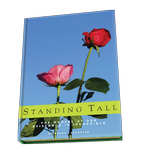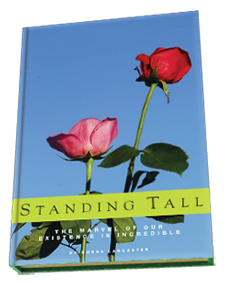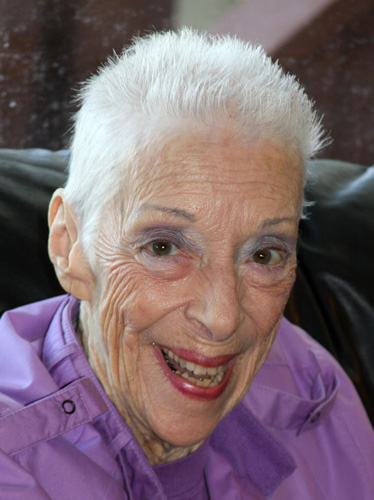What’s Going On?
30 June 2005
ALONG THE WAY:
I, the awareness, has only two things to do: One is to see what is and the other is to see the value of what is. This is reporting to X.
THIS MONTH’S THOUGHT:
Leap for joy when someone criticizes you
SCIENCE OF MAN: (Lesson eleven)
Two frequent ideas used in the Teaching is that of “what is”. “What is” is whatever one sees as fact. And the other idea that is frequently used is “what ought to be” or the ideal.
This is what one sees as good. Now frequently one sees some fact and decides that it is not good, that it has no value. And of course there begins then the struggle to change “what is” into something that one would see as good or ideal or what ought to be. And of course this is conflict, struggle, and resistance. Now the Teaching says that “what is” has a value.
Now to be able to see that value one might see that the self has many ideals or many ideas of “what ought to be” or many ideas of what is good or valuable. Unless these two, “what is” and “value” are seen in the same light, one has not seen truth.
Now a fact is not what is referred to as Truth. It is a true state of affairs. It may be true what one sees. But is not considered Truth with a capital “T”. Truth, with a capital “T” means that one sees “what is” and sees the “value” of ”what is”. And that, of course, is the ending of conflict, struggle, and resistance. Because when one sees ”what is” and sees the value of it, X acts upon that. But as long as one sees what is, something as being a fact, and the
self suggests that that is not good, that that what is ought to be something else, then comes the struggle, the conflict, and the resistance.
Now, suppose that we begin today to write down two sheets of paper. One is headed “What is”. And the other one is headed “What ought to be”. Now we will see many things today that is ”what is”, facts. But we do not see that fact as having any value. We might see it as having a very negative value, a minus. It is something as being bad. Then we will see that the self begins to work as to what that “what is” ought to be. Now, let’s write down, under the “what ought to be’s”, what we would consider to be good. In other words, ”what ought to be’s” are considered to be illusions of what was good. And we haven’t seen the good of “what is”.
A child in school is given an assignment. And he doesn’t want to do the assignment. Now, he knows what is, he’s given an assignment. But he doesn’t see it as good. So he will procrastinate, he will fret, he will complain, he will make all manners of noise, he’ll say it’s impossible, that the teacher is an ole meanie for having given him the assignment. Another child may see the assignment as being very worthwhile, of having value in becoming proficient in whatever the subject the assignment concerned. And he will find interest in doing the assignment. And very quickly the assignment is done. He has a great sense of satisfaction. X operated upon the assignment because it was seen, of course, as what is, which both agree on. And very difficult to argue with a fact. But it is very easy to contend as to the value of that fact.
And, thereby, come to Truth. Now, under the “What Ought to Be’s” and the “What Should Be’s” we’re going to write many of the things that we feel would be good. Now, the first thing we probably would feel would be good, “That I would always be comfortable”. The fact is, the what is,possibly, one is not comfortable. Now that has a value because that being uncomfortable is a signal that one is struggling toward an illusion. That one is in
some form of stress.
Now there are four possible ways of being in stress. One of course is from the environment. There are sudden changes in temperature. There are jolts, jars, and falls. There is toxicity in the air or what have you. There are various products in the environment, various substances that are toxic when taken into the body. If one is in a state of discomfort, it is telling one that one is in one form of stress. And one can then look for which form it is from the environment. The other one would be from the inner feeling, which accounts for about 97% of the stress.
The other one would be improper nutrition. One isn’t eating and providing the fuel or seeing as good the fuel that is required for the body. And the other one would be unusual activity. Seeing as desirable some sudden stressful activity. Like if you’ve been sitting at a desk for many months and suddenly go out and go skiing, or mountain climbing, or try to run a race with someone, a hundred yard dash. One would find that this would bring about some sort of ache, pain or misery. The self sees all discomfort as something bad and does not see it as of a value and begins to look for some way to achieve the ideal of what ought to be. So it uses drugs or many other methods to make one insensible so that one no longer receives the signal. One is only interested in what one sees as good.
Now, in beginning to observe the self, I observes the self, one of the more valuable areas is to see what the self has considered to be good. We have seen that it considers to be good – to be totally non-disturbed physically. That it is seen to be good to have attention. Now one can gain attention by driving down the street at an excessive rate of speed. One can gain attention by doing unusual thing, such as standing on the corner and eating a piece of coal. One will gain attention. One can gain approval from certain people by agreeing with them, which may or may not be to ones advantage. One can gain approval by acts of daring, by performing very unusual feats or by attempting to do them, to show that one is not chicken. That one is brave. And sometimes we see people do very foolhardy actions by trying to gain attention, by trying to gain approval. One may feel important by lording it over other people, by gaining some means of control over others, either by suggestion or by force or by threats or by withholding or giving of certain values that the one receiving sees.
As one observes this, one sees that there are many unusual values placed. And that in order to be conscious and to live on a different state of being, that what one has held out as being good, what one has accepted as being valuable or good, is possibly one of the greatest areas of confusion. When one sees something as true, but some other state as being of value, there’s conflict, there’s struggle, there is resistance, which is the dis-integrating factor, the struggle toward an illusion.
An illusion that what is can be changed to fitting what the self has agreed is valuable or good. Now very little effort is spent on seeing if ”what is” is good on an entirely different viewpoint if one looks at it different.
(To be continued)
A STORY:
At a meeting recently the topic for discussion was, “What do I do to prepare for the day ahead?” The chairperson went around the table asking each of us to share. One person said she meditated for 10 minutes. Another person read something spiritual or inspirational and ended her session with 5 minutes of silence. Candles, music, yoga,
incense propped up the mood. Other people used a combination of the above.
Then it came my turn. Since I was an “old-timer’ at the meeting they moved closer to the edge of their seat anticipating some ‘pearl of great wisdom’. My comments went something like this, “I drink a cup of coffee and take two aspirins. Nothing can happen throughout the day to knock me off track. I am good to go!”
The group stared in disbelief. Then the laughter took over. Hey, gang. It’s time to lighten up. Remember the questions? What am I? Where am I? What is going on? And what can I do? Well, I forget much of the time that I am a privileged, invited guest on planet earth at this magnificent Party put on by the Host, Life.
When I forget, I end up making everything important. How about a reality check? The world was doing fine before I got here and will do fine after I leave. So how important is anything?
If my first thought on awakening in the morning is, “Yea, yea, I’m at a Party” this pushes my mood up the tone scale a click or two. Just this one thought can answer the fourth question: What can I do? Because it prepares me to contribute to a pleasant, harmonious mood wherever I go.
Dr. Bob said once that we have the uncanny ability to immediately forget that which is of great value to us. Hmmm. I certainly do. I will make the decision once more to be a good guest at the Party. Maybe someday I’ll get it.
ANSWERING MACHINE AT A MENTAL HOSPITAL
Hello, and welcome to the Mental Health Hotline.
If you are obsessive-compulsive, press 1 repeatedly
If you are codependent, please get someone to press 2 for you.
If you have multiple personalities, press 3,4, and 5.
If you are paranoid, we know who you are and what you want. Stay on the line so we can trace your call.
If you are delusional, press 7 and your call will be transferred to the mother ship.
If you are schizophrenic, listen carefully and a small voice will tell you which number to press.
If you are a manic-depressive, it doesn’t matter which number you press, no one will answer.
If you are dyslexic, press 969696969696969696.
If you have a nervous disorder, please fidget with the pound key until a representative comes on the line.
If you have bi-polar disorder, please leave a message after the beep, or before the beep or after the beep? Please wait for the beep.
If you have short-term memory loss, press 9.
If you have low self-esteem, please hang up. All operators are too busy to talk to you.


